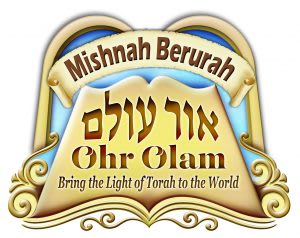Chinuch of Minor Children in Shemiras Shabbos - Part 2

Question: In practical terms, what are the Shabbos restrictions for a child who is a lav-bar-havanah (0-3)?
Discussion: A child who is a lav-bar-havanah is not restricted from doing anything he does on his own for his enjoyment or benefit. His parents, for example, are not required to stop him from watering the grass in the backyard or turn on or off any electric switch or appliance, etc. Parents, however, may not prod or command a child to do any forbidden Shabbos activity on their behalf or for their benefit229.
Question: May parents prod or command a child who is a lav-bar-havanah to do a forbidden Shabbos activity for the benefit or sake of the child?
Discussion: It depends. If the activity is forbidden min ha-Torah (for an adult), then parents may not prod or command the child to do it [unless it is necessary for the proper health and normal development of the child]. If the activity is forbidden miderabanan (for an adult), some Rishonim230 permit the parents to prod or command the child to do so, while other Rishonim231 do not. When necessary, one may rely on the lenient opinion232.
It follows, therefore, that it is forbidden to place a child of any age by the light switch or air-conditioner knob and prod or encourage him or her to turn it on or off, higher or lower. If, however, the light or air conditioner is in the child’s room and would mainly benefit the child, it would be permitted, according to some poskim, to turn off the light and higher and lower the air-conditioner, but it would be forbidden according to all poskim to turn on the light, since doing so is forbidden min ha-Torah.
When necessary, it is permitted to place a child of this age on a chair near the switch or knob and allow the child to play with it on his own, without being prodded or encouraged to do so by a parent. This is permitted since the child is doing this for his own enjoyment and not for the sake or benefit of a parent233.
Question: What are the Shabbos restrictions for a child who is bar-havanah (3-12/13)?
Discussion: As explained earlier, a child this age is old enough to understand the concept of restrictions, which means that the miderabanan obligation of chinuch in restrictions applies. If a parent, therefore, notices that a child is engaged in an activity which is forbidden to do on Shabbos min ha-Torah (for an adult), he or she needs to gently remind the child that this activity is forbidden for him. If the activity is only forbidden miderabanan (for an adult), and the child needs to do this activity for his own benefit or need, or to perform a mitzvah, some Rishonim permit it and even allow the parents to prod or command the child to do so, while other Rishonim do not. When necessary, and when done infrequently234, one may rely on the lenient opinion235.
Even if the activity is forbidden min ha-Torah (for an adult), but it is necessary for the child’s health and normal development, then the parents need not stop the child from engaging in this activity, and in certain situations may even assist him with what he needs to do236.
The previously-mentioned leniency of placing a lav-bar-havanah child near a light switch and letting him play with it, does not apply to a child who is a bar-havanah.
Question: Is a child of any age restricted from playing with a music-making toy on Shabbos?
Discussion: A music-making toy is forbidden to be played with miderabanan, as explained in Chapter 338237. A child who is a bar-havanah should be told gently that the toy is muktzeh and be put away. If the child refuses and will not settle down to eat or sleep without it, he may be allowed to continue playing with it, and if necessary and infrequently, the parent may make the accessible to the child.
A child who is a lav-bar-havanah can play with any toy he wishes, as long as he takes it himself. Parents should not prod or entice the child to play with it. If the child will not settle down to eat or sleep without it, a parent may make the toy accessible to the child.
229. In certain situations, where a large amount of money is at stake, it is permitted for a parent to directly instruct a child, of any age, to do a miderabanan prohibition for him, such as moving muktzeh or carrying in a karmelis; see Chapter 266 for the details of this halachah.
230. Rashba and Ran, quoted by Beiur Halachah 343:1, s.v. m’divrei.
231. Rambam, quoted by Shulchan Aruch 343:1.
232. There is no clear consensus among the poskim as to the final halachah on this issue. Some are lenient (see Shulchan Aruch ha-Rav 343:7) while others are not. Mishnah Berurah offers conflicting rulings: In 343:3, quoting Beiur ha-Gra, and in Beiur Halachah, s.v mdivrei, quoting Rav Akiva Eiger, he seems to be lenient, but in 362:44 he rules stringently. Still, when necessary, this leniency may be relied upon, especially if there a mitzvah situation involved (see Taz 346:6 and Pri Megdim).
233. Based on Shulchan Aruch ha-Rav 343:10. See Megillas Sefer 90:10.
234. See Shulchan Aruch ha-Rav 343:6; Machzei Avraham 1:56.
235. See sources for this dispute and decision in earlier footnotes discussing a child who is a lav-bar-havanah.
236. For this reason, a child even after reaching the age of chinuch may be fed on Yom Kippur, does not to be awakened to recite Shema or tefilah in their proper time slots, does not have to wait a full six hours between meat and dairy, and many such other examples.
237. Most of the so called muktzeh toys available today are only forbidden to be played with miderabanan. If so, the following rules will apply to most.
